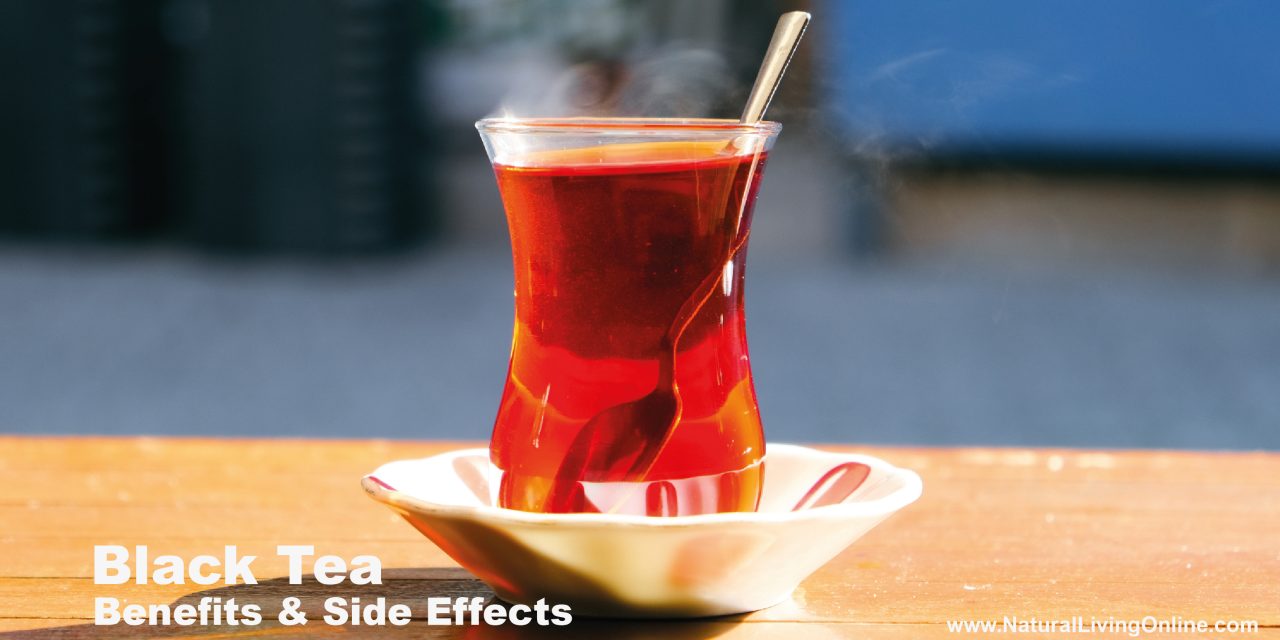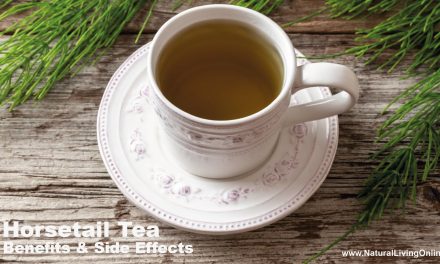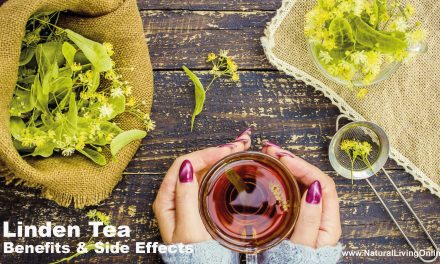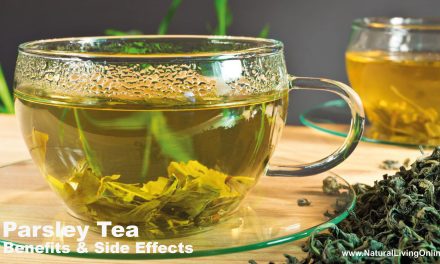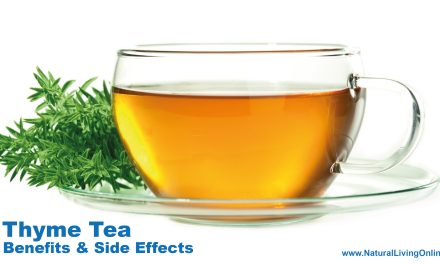Black tea is one of the most widely consumed beverages in the world, cherished not only for its robust flavor but also for its potential health benefits. Made from the leaves of the Camellia sinensis plant, black tea is rich in antioxidants, which may support heart health, boost metabolism, and enhance mental alertness. Drinking black tea regularly may contribute to improved cardiovascular health and better digestion.
Despite its benefits, black tea does have some side effects that should be considered. The caffeine content in black tea can lead to increased heart rate, anxiety, or insomnia, especially if consumed in large amounts. Also, it may interact with certain medications, making it crucial to consult a healthcare provider if you have any pre-existing health conditions.
Enjoying black tea can be a delightful and healthy choice when incorporated correctly into your diet. Whether brewing a hot cup to kickstart your morning or sipping an iced version on a warm afternoon, knowing both the benefits and risks will help you make informed choices.
Key Takeaways
- Black tea may support heart health and boost metabolism.
- Overconsumption can cause issues due to its caffeine content.
- Consult with a healthcare provider for any medication interactions.
Composition and Types of Black Tea
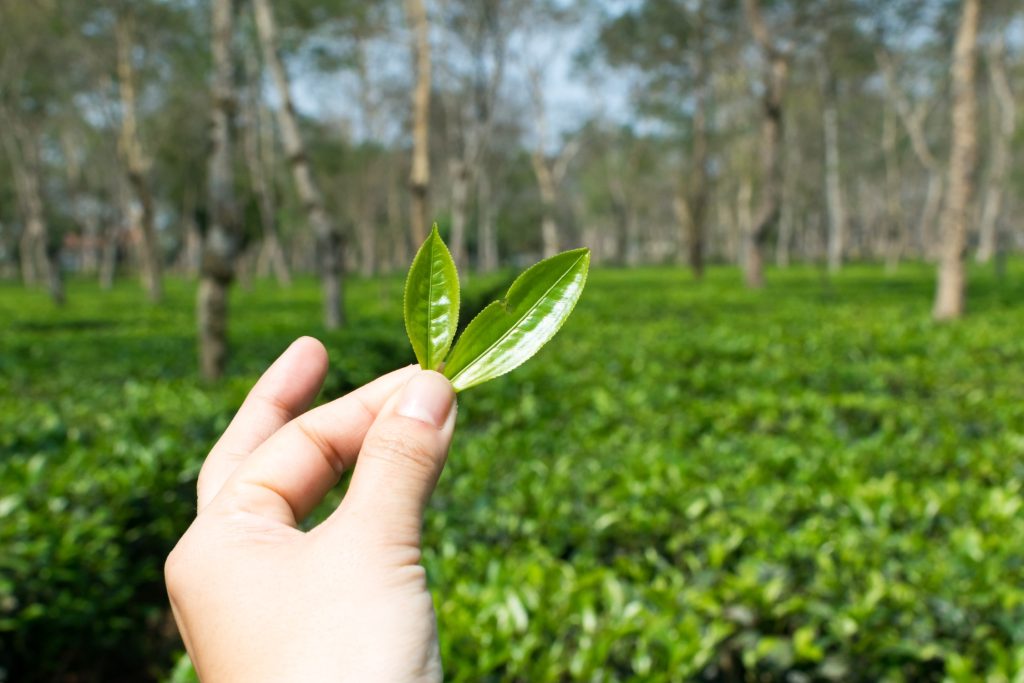
Black tea is made from the leaves of the Camellia sinensis plant and is rich in compounds like theaflavins and thearubigins. Understanding its composition helps distinguish it from other types like green, white, and oolong teas.
Camellia Sinensis and Varieties
Black tea comes from the leaves of the Camellia sinensis plant. This is the same plant that produces green, white, and oolong teas. The primary difference lies in the processing. For black tea, the leaves undergo full oxidation, which gives it a darker color and richer flavor compared to other teas.
There are several varieties of black tea, each with unique characteristics. For instance, Assam tea from India is known for its strong, malty flavor while Darjeeling tea offers a more delicate taste with floral notes. Another popular type is Ceylon tea from Sri Lanka, which is often described as brisk and citrusy.
Theaflavins and Thearubigins
Theaflavins and thearubigins are two prominent compounds found in black tea. These compounds form during the oxidation process of the tea leaves.
Theaflavins are responsible for the reddish color and astringent taste of black tea. They also provide antioxidant properties, which help in reducing oxidative stress in the body. On the other hand, thearubigins contribute to the dark color and fuller body of the tea. They also act as antioxidants but offer different health benefits compared to theaflavins.
Both theaflavins and thearubigins are important for distinguishing black tea from other types of tea, not just in terms of taste and color, but also in their health benefits.
Comparison with Green, White, and Oolong Teas
Black tea differs significantly from green, white, and oolong teas due to its full oxidation process. Green tea, for example, is minimally processed and not oxidized, resulting in a lighter color and a more delicate, vegetal flavor.
White tea is the least processed of all, made from young leaves and buds of the Camellia sinensis plant. It has a very light, sweet taste and is rich in catechins, another type of antioxidant.
Oolong tea falls between green and black tea in terms of oxidation. It is partially oxidized, which gives it a flavor profile that can range from floral to fruity. Each type of tea offers unique flavors and health benefits, driven primarily by their respective processing methods.
Health Benefits of Black Tea

Black tea offers a variety of health benefits, including helping with heart health, blood sugar management, and cancer prevention. Its antioxidant properties and antimicrobial effects make it a valuable addition to a healthy lifestyle.
Antioxidant Properties
Black tea is rich in antioxidants, such as polyphenols and flavonoids. These compounds help protect the body from oxidative stress, which can damage cells and lead to various diseases.
Polyphenols, found abundantly in black tea, are known for their anti-inflammatory effects, which can reduce the risk of chronic illnesses. Flavanols, another type of antioxidant, contribute to overall gut health by promoting a balance of healthy bacteria in the digestive system.
Heart Health and Cardiovascular Benefits
Drinking black tea regularly may contribute to better heart health. Studies show that black tea can help lower blood pressure and reduce the risk of stroke.
Flavonoids in black tea aid in maintaining good cholesterol levels, which is crucial for cardiovascular health. These compounds can improve blood vessel function, reduce arterial stiffness, and protect against heart disease.
Blood Sugar Management and Diabetes
Black tea may help manage blood sugar levels, making it beneficial for individuals with or at risk of diabetes. The polyphenols in black tea can enhance insulin sensitivity, which helps regulate blood sugar.
Research indicates that consuming black tea can lower the chance of developing type 2 diabetes. The tea’s ability to slow down the absorption of sugar in the bloodstream contributes to better blood sugar control.
Immune System Support and Antimicrobial Effects
The antimicrobial properties of black tea support the immune system by fighting off harmful bacteria and viruses.
Black tea contains alkylamine antigens, which help the immune system become more responsive to infections. Additionally, the antioxidants in black tea may boost overall immune function, keeping the body protected against common illnesses.
Cancer Prevention and Other Long-Term Benefits
Regular consumption of black tea has been linked to a lower risk of certain cancers. Polyphenols and other antioxidants in black tea can inhibit the growth of cancer cells.
Black tea’s anti-inflammatory properties may reduce the risk of chronic diseases associated with aging. Its compounds can protect against aging-related cellular damage, supporting long-term health and wellness.
Black tea’s health benefits are diverse, contributing to overall wellness through its rich antioxidant content, heart health support, blood sugar management, immune-boosting properties, and potential cancer prevention.
Potential Side Effects and Risks
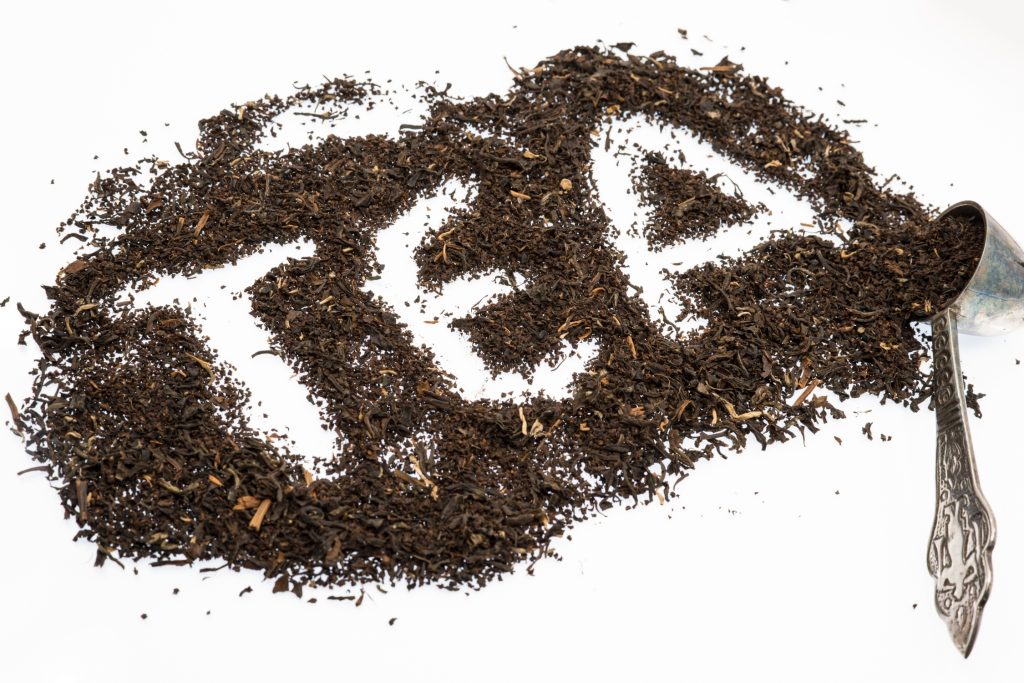
Drinking black tea can offer several health benefits, but it’s important to be aware of its potential side effects and risks. This section covers issues related to caffeine, blood pressure and heart rate, and interactions with medications.
Effects of Caffeine and Safe Consumption
Black tea contains caffeine, which can affect the body in various ways. Drinking large amounts of black tea can lead to anxiety, nervousness, and restlessness. It can also cause difficulty sleeping and headaches in some individuals.
Excessive caffeine intake may result in increased urination and dehydration. For many people, consuming up to 400 milligrams of caffeine per day is safe. This is roughly equivalent to four cups of brewed black tea. Children and individuals who are sensitive to caffeine should limit their intake to avoid these side effects.
Impact on Blood Pressure and Heart Rate
Caffeine in black tea can impact blood pressure and heart rate. Some people may experience a temporary increase in blood pressure after drinking caffeinated beverages. This effect is more pronounced in individuals with high blood pressure.
Black tea can also cause an irregular heartbeat or palpitations, particularly in large quantities. People with heart conditions should monitor their intake and consult a healthcare provider if they notice any adverse effects. Regular consumption in moderation is generally safe for most individuals.
Interactions with Medications and Health Conditions
Black tea may interact with certain medications and exacerbate health conditions. For example, it can interfere with blood-thinning medications, potentially reducing their effectiveness. People taking anticoagulants should be cautious about their tea consumption.
Additionally, black tea may worsen symptoms in individuals with certain conditions like anxiety or high blood pressure. Its caffeine content can increase nervousness and exacerbate restlessness in sensitive individuals. It’s essential to discuss tea consumption with a healthcare provider if you have any pre-existing health conditions.
Brewing Techniques and Consumption
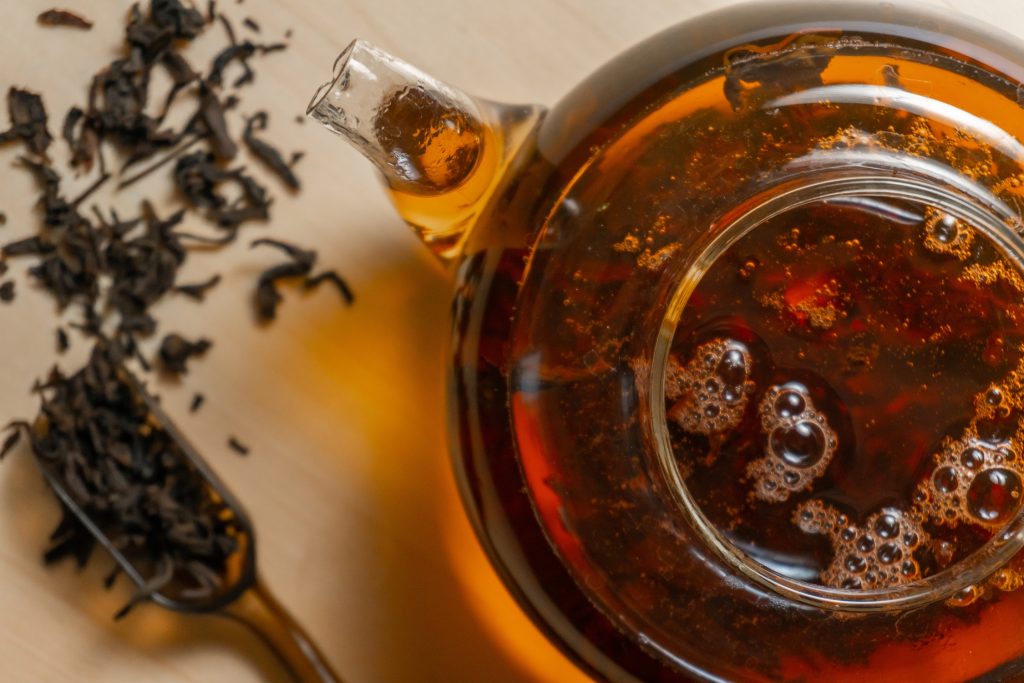
Proper brewing techniques can maximize the health benefits of black tea while ensuring optimal taste and quality. Adding different elements like milk, sugar, or spices changes the tea’s characteristics and effects.
Optimal Brewing for Health Benefits
To get the most out of black tea, it’s essential to brew it at the right temperature and duration. Hot water extracts the antioxidants and caffeine from the tea leaves. It’s best to use water that’s around 200°F (93°C). Steeping the tea for 3-5 minutes ensures a good balance of flavor and nutrient extraction. Longer steeping can lead to the release of more tannins, which might make the tea taste bitter.
Using tea bags or loose leaf tea depends on personal preference. Loose leaf tea often offers better quality and more antioxidants. Avoid using excessive sweeteners, as they can add unwanted calories.
Influences on Taste and Quality
Several factors can influence the taste and quality of black tea. The temperature of the water and the steeping time are crucial. If the water is too hot or the tea is steeped for too long, the tea can become too tannic and bitter. On the other hand, too short steeping can result in a weak, flavorless brew.
The quality of the tea leaves also plays a significant role. Higher quality leaves usually provide a richer taste and more health benefits. Storing tea in a cool, dry place, away from light, helps maintain its freshness and quality.
Additives and Their Effects
Adding milk and sugar to black tea can affect both its taste and health benefits. Milk can make the tea creamy and reduce its astringency, but it might also bind with some of the antioxidants, potentially reducing their availability. Sugar adds sweetness but also increases the calorie content.
Spices like cinnamon and ginger can enhance the flavor and add additional health benefits. These spices can provide anti-inflammatory properties and make the tea more enjoyable. It’s important to consider that adding these ingredients changes the original tea profile and nutritional content.
Incorporating Black Tea in Your Diet
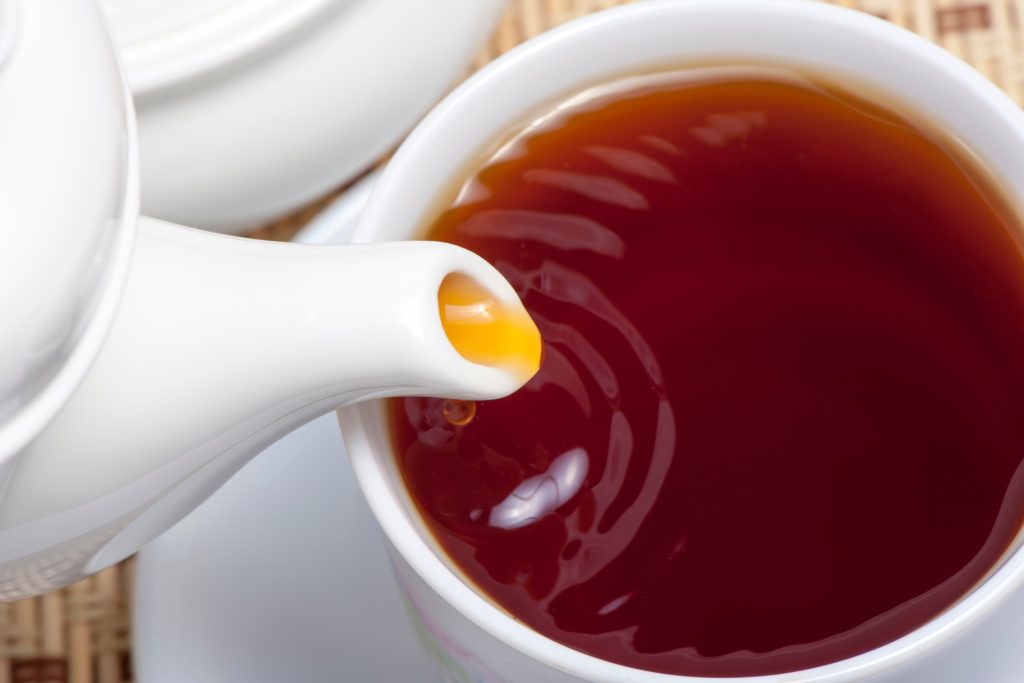
Black tea can be a beneficial addition to your daily routine when consumed in moderation. There are various ways to incorporate it into your diet, from understanding daily recommendations to exploring alternative tea choices and pairing it with a balanced diet.
Daily Recommendations and Moderate Consumption
For most individuals, consuming 3-4 cups of black tea per day is considered safe. This moderate amount ensures you receive health benefits such as improved energy and focus without adverse effects.
Too much black tea can lead to issues like increased heart rate and difficulty sleeping. To avoid these problems, limit your intake and avoid drinking tea late in the day.
Alternative Tea Choices for Different Needs
While black tea offers many benefits, switching it up with other teas can be advantageous. For example, green tea is lower in caffeine and has its own unique health benefits, like enhancing metabolism and providing antioxidants.
Herbal teas, such as peppermint or chamomile, are caffeine-free and can aid in relaxation and digestion. This variety helps manage caffeine intake and allows you to enjoy a related spectrum of benefits.
Complementing Tea with a Balanced Diet
Adding black tea to your diet is best when paired with a nutritious diet. Combining tea with a variety of whole foods, such as fruits, vegetables, and whole grains, can maximize the intake of vital nutrients, enhancing your overall health.
For those on plant-based diets, it’s important to be aware that black tea may reduce iron absorption from non-heme sources. Including vitamin C-rich foods can help counteract this effect and improve iron levels.
Frequently Asked Questions
What are the health benefits of drinking black tea regularly?
Regular black tea consumption can help protect the heart and lower the risk of cancer. It also contains antioxidants that aid in removing free radicals from the body, reducing the risk of chronic diseases. Black tea is also known to boost mental alertness and provide a moderate amount of hydration.
Can black tea have positive effects on skin health?
Yes, black tea can improve skin health. The antioxidants present in black tea help fight free radicals that damage the skin. This can contribute to a healthier, more youthful appearance. Additionally, compounds in black tea can reduce inflammation and redness.
Is there a link between black tea consumption and sexual health?
There is limited scientific evidence to support a direct link between black tea and sexual health. However, the general benefits of improved blood circulation and reduced stress may have a positive impact on overall sexual health.
Are there any potential side effects associated with drinking black tea daily?
Drinking black tea daily can lead to side effects like anxiety, difficulty sleeping, and headaches. It can also cause increased urination, irregular heartbeat, nausea, and vomiting, especially when consumed in high amounts.
Does adding milk to black tea affect its health benefits?
Adding milk to black tea may impact some of its health benefits. Some studies suggest that milk proteins can bind to antioxidants in tea, potentially reducing their effectiveness. However, black tea with milk still retains many of its beneficial properties, such as hydration and improved mental alertness.
Can consumption of black tea influence digestive health?
Black tea can positively influence digestive health. It contains compounds that promote gut health and aid in digestion. The tannins in black tea have a soothing effect on the digestive tract, which can help reduce symptoms like diarrhea and upset stomach.
References:
Molecular evidences of health benefits of drinking black tea
Tea and Health: Studies in Humans
6 health benefits of drinking black tea
Antioxidative properties of black tea
This website does not provide medical advice.
All information provided on this website, and on associated social media networks, including but not limited to texts, images, and numbers are for general information purpose only. It is not intended as medical advice and it does not include all possible precautions, side effects, or interactions that may occur. Neither NaturalLivingOnline.com nor its author/founder take responsibility for how you use this information. Statements contained on NaturalLivingOnline.com have not been evaluated by the FDA. You should conduct thorough research via multiple sources and consult your physician or qualified doctor before using any essential oil or herbal remedy. Information on NaturalLivingOnline.com must not be relied upon for medical, legal, financial or other decisions.

